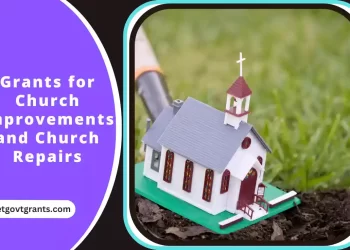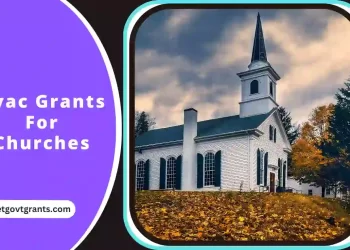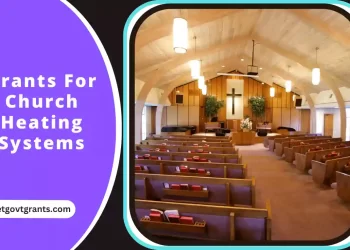List of Top 8 Churches That Help With Kub – Kinship care is also known as Kub, is a sort of child care where you can keep your kids placed with relatives or near relatives. Churches might help kinship families by giving financial aid, counseling, respite care, and legal assistance. They can likewise interface families to other local area services, for example, food banks and housing help programs.
If you are having difficulty paying your Kub, you should seek assistance from one of these organizations or programs. On the Kub website, you may also discover further information regarding churches that provide assistance with Kub.
Apart from Kub, there are several churches that do help with DP&L, BGE, and PG&E. Go through the article to know more about the churches that help with Kub.
Highlights of this Post
Do Churches Help With Kub?
Indeed, many churches help with Kub (kinship care). To study how your church can help Kub, contact your neighborhood kid welfare agency office or a national organization that advances kinship care, like the National Kinship Alliance.
There are a few more churches that give this kind of help. You can contact your local church or search online to find a church in your region that provides kinship care help.
List Of Churches That Help With Kub
If you are having trouble paying your Kub, please contact one of the churches listed below. They are there to assist.”
The Church of Jesus Christ of Latter-day Saints (LDS Church), generally known as the Mormon Church, is a Christian denomination established by Joseph Smith in 1830. Worldwide, the church has about 16 million members.
The LDS Church has a long history of assisting related families. The church started the “100,000 Orphans Initiative” in 2017 to assist in providing kinship care for children in need. Kinship families can get financial aid, counseling, and other services through this program.
The LDS Church is devoted to assisting kinship families in raising their children in a loving and caring environment.
The LDS Church’s support for kinship care demonstrates its dedication to assisting children in need. The church’s programs and services enable kinship families to raise their children in a caring and supportive atmosphere, which is critically needed.
The United Methodist Church (UMC) is an American mainstream Protestant Christian denomination. The Methodist Church and the Evangelical United Brethren Church merged to form it in 1968. The United Methodist Church has almost 7 million members around the world.
The United Methodist Church has a long history of advancing kinship care. The church passed a resolution in 1994 encouraging its members to “provide support and advocacy for kinship care families.”
The United Methodist Church is devoted to helping kinship families in bringing their children up in a loving and caring atmosphere.
The United Methodist Church’s support for kinship care demonstrates its dedication to assisting children in need. The church’s programs and services enable kinship families to raise their children in a caring and supportive atmosphere, which is critically needed.
The Presbyterian Church (USA) (PCUSA) is an American mainstream Protestant Christian denomination. A group of Scottish and English immigrants founded it in 1706. Worldwide, the PCUSA has about 1.7 million members.
The PCUSA has traditionally advocated for familial care. The church passed a resolution in 1998 urging its members to “promote kinship care as a preferred option for children in need.”
The PCUSA is dedicated to assisting kinship families and assisting them in raising their children in a caring and supportive atmosphere.
The PCUSA’s support for kinship care demonstrates its dedication to assisting children in need. The church’s programs and services enable kinship families to raise their children in a caring and supportive atmosphere, which is critically needed.
The Evangelical Lutheran Church in America (ELCA) is an American mainstream Protestant Christian denomination. It was formed in 1988 via the union of three Lutheran congregations. The ELCA has about 3.8 million members across the world.
The ELCA has always advocated for familial care. The church passed a resolution in 1995 urging its members to “provide support and advocacy for kinship care families.”
The ELCA is dedicated to assisting kinship families in raising their children in a caring and supportive environment.
The ELCA’s support for kinship care demonstrates its dedication to assisting children in need. The church’s programs and services enable kinship families to raise their children in a caring and supportive atmosphere, which is critically needed.
The Catholic Charities has generally upheld familial care. For kids who can’t live with their biological parents, the church feels that kinship care is the best other option. Kinship care refers to the situation of a kid with a relative or close family acquaintance.
The Catholic Church is committed to helping kinship families and helping them in bringing their kids up in a loving and caring atmosphere.
The Catholic Church’s help for kinship care shows its devotion to helping kids in need. The church’s programs and services empower kinship families to bring up their children in a caring and supportive atmosphere, which is critically needed.
The National Kinship Alliance (NKA) is a non-profit organization that advances family kinship care across the country. The NKA was established in 1991 and is situated in Washington, D.C. The NKA’s point is to “improve the lives of kinship care children and families by providing education, support, and advocacy.”
At the federal level, the NKA likewise pushes for kinship care. The NKA strives to provide kinship families with the assets and help they expect to bring their children up in a loving and caring environment.
Getgovtgrants welcome you to contact the National Kinship Alliance in the event that you are a kinship family or know somebody who is. The NKA can offer you information and services to help you in bringing up your kinship care kid.
The Child Welfare Information Gateway (CWIG) is a website that offers child welfare information. It is a congressionally required and sponsored information service of the US Children’s Bureau, Administration for Children and Families, US Department of Health and Human Services.
The CWIG website is a wonderful resource for kinship care families and organizations. The website offers information and tools to assist families in raising their children in a caring and supportive atmosphere.
The National Foster Care Coalition (NFCC) is a nationwide advocacy organization for kids in foster care. The NFCC was established in 1989 and is situated in Washington, D.C. The target of the National Foster Care Coalition is to “improve the lives of children in foster care by advocating for policies and practices that promote their safety, permanency, and well-being.”
In the event that you are a foster kid or know somebody who is, I ask you to contact the National Foster Care Coalition. The NFCC can help you explore the foster care system by giving information and services.
Churches That Help With DP&L Near Me
If you are having difficulty paying your Kub, you should seek support from one of these organizations or programs. You may also discover more information about Kub assistance on the Kub website.
When requesting assistance, bring proof of income, residency, and any other documentation that may be required. A copy of your Kub may be necessary as well.
Bottom Line
Churches that help kinship families by giving financial aid, counseling, respite care, and legal assistance. They can likewise connect families to local area assets, for example, food banks, housing assistance programs, and legal help.
Churches might have a massive effect on the existence of children in kinship care and their families by giving this kind of help. If you’re having problems paying your Kub, if it’s not too much hassle, contact your local church that offers assistance with KuB. They may be able to provide you with the assistance you seek.
If you are experiencing problems paying your Kub, please contact one of the churches listed above. They are happy to help you. If you want assistance with your LG&E account, you can seek support from churches that assist with LG&E.
Frequently Asked Questions
We are going to answer some of the most frequently asked questions about the Churches That Help With Kub. Check them out.
What are the advantages of churches assisting with Kub?
There are several advantages to churches assisting with Kub. These advantages include:
- Financial aid to kinship families can help them satisfy their children’s fundamental requirements.
- Counseling kinship families can assist them in coping with the emotional problems of raising a kid in care.
- Giving kinship families respite care can offer them a break from caring and help them prevent burnout.
- Connecting families with community services can help them discover the aid they require.
- Advocating on behalf of kinship families at the local, state, and federal levels can help guarantee that they receive the assistance they require.
How might I find a church that can help me with Kub?
There are a few options for finding a church that can help with Kub. You may:
- Demand a rundown of churches that help kinship families from your nearby child welfare agency.
- Look online for churches in your region that give family kinship programs or services.
- Find out if they give help to kinship families.
What are some of the difficulties churches encounter in assisting with Kub?
There are several obstacles that churches confront while assisting with Kub. Among these difficulties are:
- Lack of funding: Many churches lack the resources to give the degree of assistance that kinship families require.
- Lack of training: Many church leaders and volunteers lack the necessary training to effectively help kinship families.
- Many members of the church community are unaware of the requirements of kinship families.
What can I do to assist my church in assisting Kub families?
There are a few things you can do to support Kub families via your church. These are some examples:
- Discuss the need for familial assistance with your pastor or other church officials.
- Help kinship families by volunteering your time.
- Make a financial contribution to help finance programs and services for kinship families.
- Educate your congregation about the needs of kinship families.
- We can make a difference in the lives of children in kinship care and their families by working together.



















